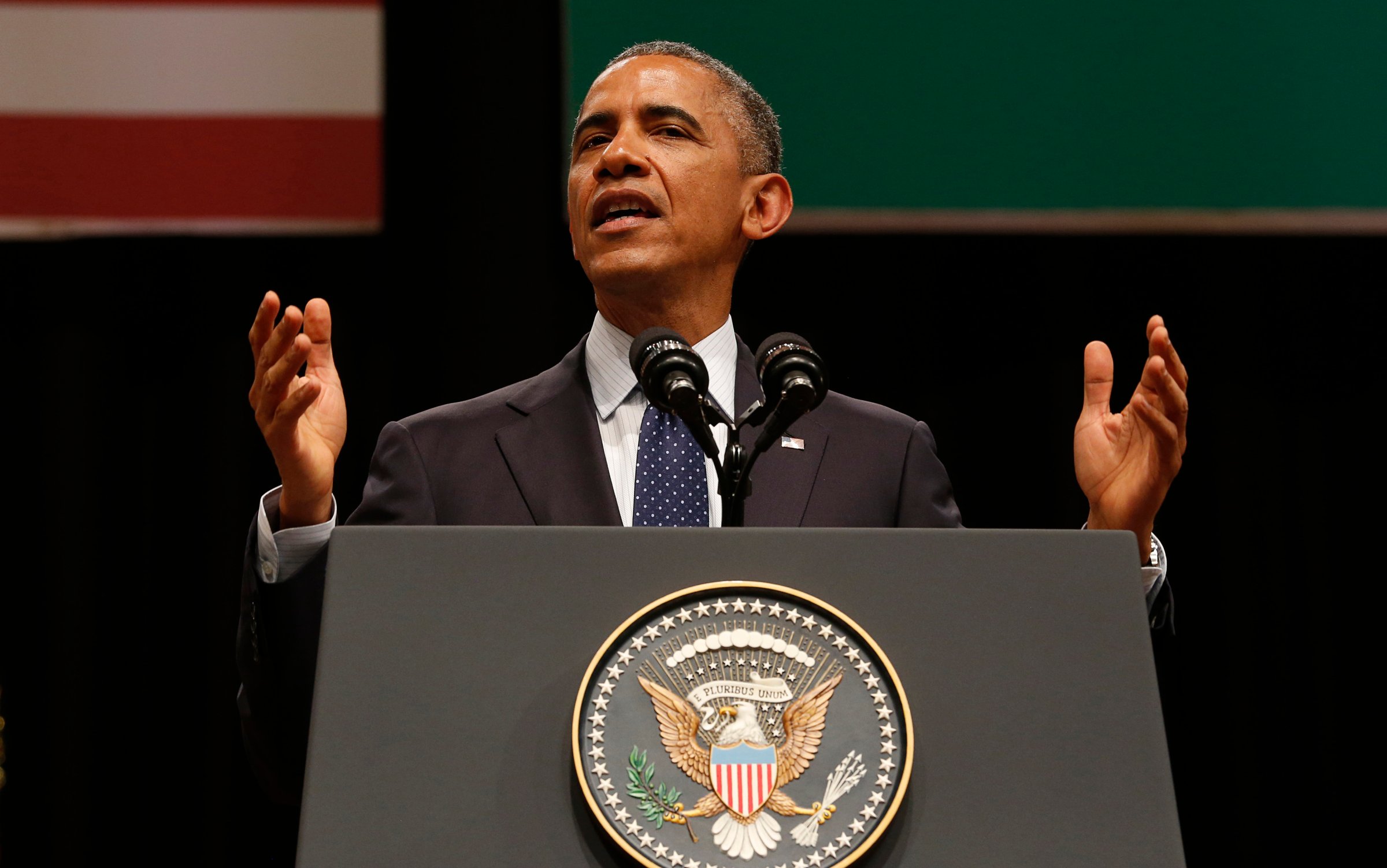
“We may have different histories and speak different languages,” said U.S. President Barack Obama at New Delhi’s Siri Fort Auditorium on Tuesday morning, “but when we look at each other, we see a reflection of ourselves.”
Addressing a crowd of about 2,000 people in his last public event before flying to Saudi Arabia later that afternoon, Obama spoke at length about the historic and contemporary similarities between the U.S. and India. He linked Mahatma Gandhi and Martin Luther King Jr., Indian thinker Swami Vivekananda and Obama’s hometown of Chicago, and, of course, in keeping with the close personal equation the two leaders made evident during his three-day visit, himself and Indian Prime Minister Narendra Modi.
“We live in countries where a grandson of a cook can become President and son of a tea seller can become Prime Minister,” he said, referring to their respective backgrounds.
Obama also used his address to touch on the importance of defending religious diversity. Although the majority of India’s 1.27 billion-strong population is Hindu, about a fifth of its people belong to other religions like Islam, Christianity and Sikhism, with diversity a growing subject of concern among opponents of the Hindu nationalist Bharatiya Janata Party that Modi chairs.
“In India and America, our diversity is our strength,” he said. “India will succeed so long as it is not splintered along the lines of religious faith.”
Meanwhile, speaking about the U.S.-India relationship on Tuesday, President Obama called it “one of the defining partnerships of the century,” and advocated a greater role for India in the Asia-Pacific, seemingly a tacit acknowledgement of China’s growing regional influence.
He also touched upon empowering women, an issue that Modi made one of the major themes of Obama’s visit and Monday’s Republic Day celebrations. “Indian women have shown that they can succeed in every field,” he said before advocating equal opportunity and safety for women. “Every woman should be able to go about her day and be safe and be treated with the respect and dignity that she deserves.”
Obama also mentioned several key issues and agreements from his visit — including a civilian nuclear deal between the two countries and climate change — before concluding with a reiteration of the new, elevated U.S.-India relations the two leaders have forged.
“I’m the first American President to come to your country twice,” he said, “but I predict I will not be the last.”
More Must-Reads from TIME
- Donald Trump Is TIME's 2024 Person of the Year
- Why We Chose Trump as Person of the Year
- Is Intermittent Fasting Good or Bad for You?
- The 100 Must-Read Books of 2024
- The 20 Best Christmas TV Episodes
- Column: If Optimism Feels Ridiculous Now, Try Hope
- The Future of Climate Action Is Trade Policy
- Merle Bombardieri Is Helping People Make the Baby Decision
Write to Rishi Iyengar at rishi.iyengar@timeasia.com